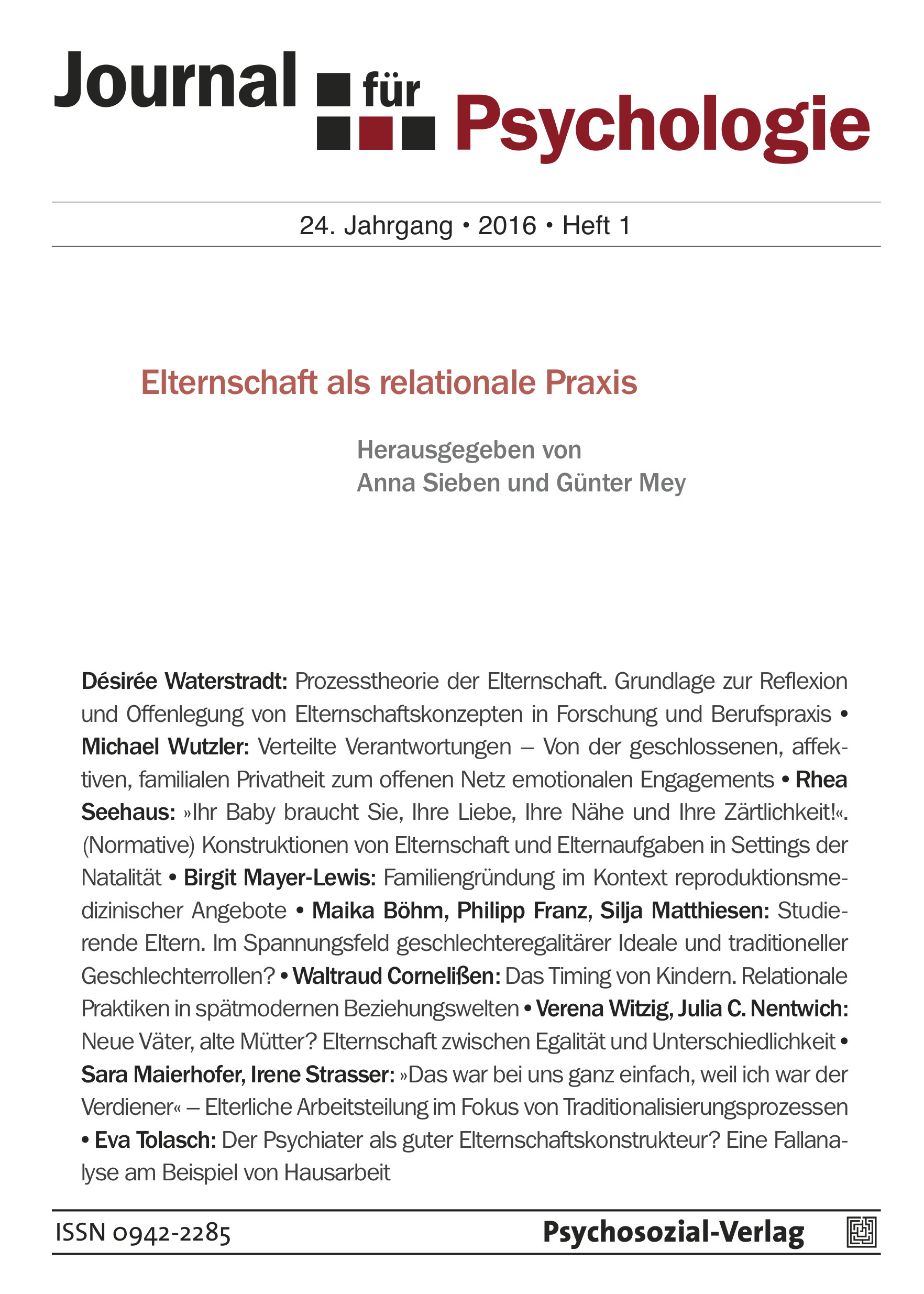Shared responsibilities – from a closed and affective privacy to an open network of emotional commitment
Keywords:
child’s best interest, child welfare/well-being, disciplinary technologies, biopolitics, transparency, control society, youth welfare serviceAbstract
Development and realization of parenthood depend on the historically specific problematization of child welfare/well-being. The practices of youth welfare service and modern parenthood are primary orientated towards the collective protection and strengthening of the child’s autonomy. According to Foucault, family could be understood as a disciplining architecture and simultaneously as a biopolitical regime of the child’s body. In this regard, the second step would be to discuss the main regulative effects of the judicial concept child welfare/well-being (Kindeswohl) and the major transformational processes of the German youth welfare service. Historically, the regulations of family and socialization were based explicitly on rigid gender norms (traditional family framework). However this article intends to examine how these rigid norms are getting replaced by a decentralized manifold networking and screening of socialization. Instead of a disciplining architecture with a relatively closed, affective and heteronormative privacy, family becomes a relatively open and networked commitment of prevention.Downloads
Published
2012-02-22
How to Cite
Wutzler, Michael. 2012. “Shared Responsibilities – from a Closed and Affective Privacy to an Open Network of Emotional Commitment”. Journal für Psychologie 24 (1). https://journal-fuer-psychologie.de/article/view/392.
Issue
Section
Schwerpunkt
License
This license allows private use and unmodified distribution, but prohibits editing and commercial use (further information can be found at: https://creativecommons.org/licenses/by-nc-nd/4.0/).
The terms of the Creative Commons licence only apply to the original material. The reuse of material from other sources (marked with a reference) such as charts, illustrations, photos and text extracts may require further permission for use from the respective copyrights holder.



